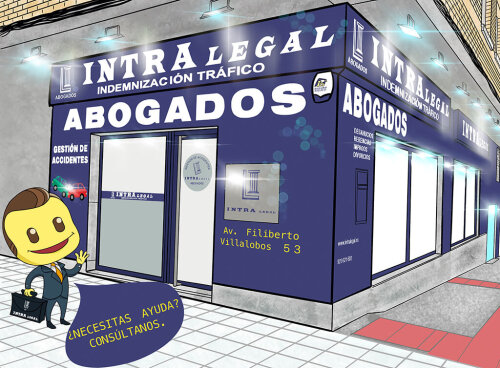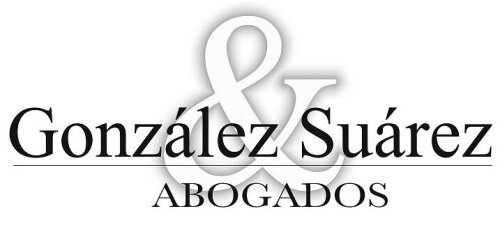Best Workers Compensation Lawyers in Spain
Share your needs with us, get contacted by law firms.
Free. Takes 2 min.
Or refine your search by selecting a city:
List of the best lawyers in Spain
About Workers Compensation Law in Spain
Workers' Compensation in Spain is a legal framework designed to protect employees who suffer workplace injuries or occupational diseases. This system ensures that employees receive compensation for lost wages, medical expenses, and rehabilitation costs without the need to prove the employer's fault. Spain's Workers' Compensation system is part of broader social security coverage, managed by mutual insurance companies and overseen by the government. The goal is to provide quick and fair compensation while promoting workplace safety and injury prevention.
Why You May Need a Lawyer
While the Workers' Compensation system in Spain aims to be straightforward, legal assistance might be necessary in several situations. For instance, if an employee's claim is denied by the insurance company, or if the compensation amount is insufficient to cover the actual damages, legal intervention could be required. Additionally, legal complexities may arise in cases involving subcontractors or independent contractors. A lawyer experienced in Workers' Compensation can navigate the claims process, handle disputes, and ensure the protection of the employee's rights.
Local Laws Overview
Key aspects of Workers' Compensation laws in Spain include comprehensive coverage for workplace injuries and illnesses, mandatory insurance for employers, and strict guidelines for claim submissions. The laws require that employers report any workplace incident within five days, and employees have the right to receive immediate medical treatment. Compensation covers medical expenses, temporary and permanent disability benefits, rehabilitation costs, and, in some cases, death benefits to family members. Spanish law mandates employers to have a prevention plan to minimize risks and promote a safe working environment. Violations can lead to sanctions and increased liability.
Frequently Asked Questions
1. What types of injuries are covered by Workers' Compensation in Spain?
Workers' Compensation in Spain covers injuries that occur in the course of employment, including physical injuries, occupational diseases, and in some cases, psychological injuries related to work.
2. How do I file a Workers' Compensation claim in Spain?
Claims are typically filed through the employer's insurance provider. It's crucial to report the injury promptly, provide medical documentation, and follow the insurer's procedures for filing a claim.
3. How long do I have to file a claim?
Under Spanish law, the injury must be reported to the employer within five days of occurrence. However, specific deadlines for filing claims may vary, so it's advisable to act quickly.
4. Can I choose my own doctors for treatment?
Initially, treatment should be obtained from the healthcare providers designated by the employer’s insurance. Thereafter, employees might have the option to seek medical attention from their own doctors.
5. What if my claim is denied?
If your claim is denied, you should receive a written explanation. At this point, consulting with a lawyer experienced in Workers' Compensation can help in disputing the denial and exploring further legal options.
6. Does Workers' Compensation cover all expenses?
Workers' Compensation typically covers reasonable and necessary medical expenses, rehabilitation costs, and a portion of lost wages due to disability. It may not cover all other associated costs.
7. Are self-employed workers eligible for Workers' Compensation?
Self-employed individuals can opt into a special Workers' Compensation insurance scheme to receive coverage similar to that of employees.
8. Can an employer dismiss me for filing a Workers' Compensation claim?
Spanish law protects employees from being dismissed or retaliated against for filing a legitimate Workers' Compensation claim.
9. What happens if I'm unable to return to work?
If an injury results in a long-term inability to resume work, permanent disability benefits may be available to support the injured worker financially.
10. Can I sue my employer for a workplace injury?
Workers' Compensation is generally an exclusive remedy, meaning employees typically cannot sue the employer for additional compensation, except in cases of employer negligence or intentional harm.
Additional Resources
For further assistance, consider the following resources: National Institute for Safety and Health at Work (INSST) for occupational safety guidelines; the Ministry of Labor, Migration and Social Security for regulations and workers' rights; and mutual insurance companies managing the Workers' Compensation system. Professional associations such as the General Council of Spanish Lawyers (CGAE) can also provide referrals to experienced compensation lawyers.
Next Steps
If you require legal assistance with a Workers' Compensation claim, start by gathering all relevant documentation, including medical records, incident reports, and communication with the insurer. Consult with a lawyer specializing in Workers' Compensation to discuss your case and explore your options. Seek recommendations or use a lawyer referral service to find a qualified professional. Taking timely action is crucial to protect your rights and ensure fair compensation.
Lawzana helps you find the best lawyers and law firms in Spain through a curated and pre-screened list of qualified legal professionals. Our platform offers rankings and detailed profiles of attorneys and law firms, allowing you to compare based on practice areas, including Workers Compensation, experience, and client feedback.
Each profile includes a description of the firm's areas of practice, client reviews, team members and partners, year of establishment, spoken languages, office locations, contact information, social media presence, and any published articles or resources. Most firms on our platform speak English and are experienced in both local and international legal matters.
Get a quote from top-rated law firms in Spain — quickly, securely, and without unnecessary hassle.
Disclaimer:
The information provided on this page is for general informational purposes only and does not constitute legal advice. While we strive to ensure the accuracy and relevance of the content, legal information may change over time, and interpretations of the law can vary. You should always consult with a qualified legal professional for advice specific to your situation.
We disclaim all liability for actions taken or not taken based on the content of this page. If you believe any information is incorrect or outdated, please contact us, and we will review and update it where appropriate.
Browse workers compensation law firms by city in Spain
Refine your search by selecting a city.















